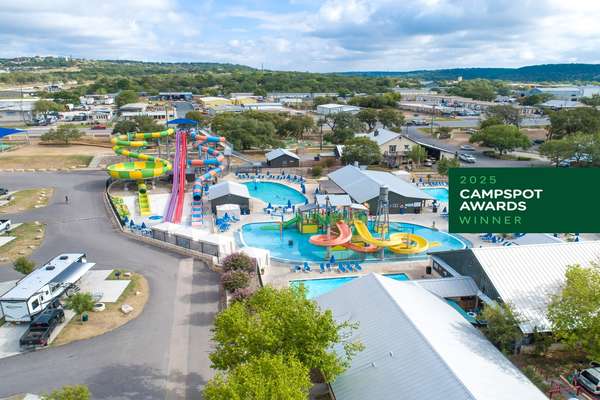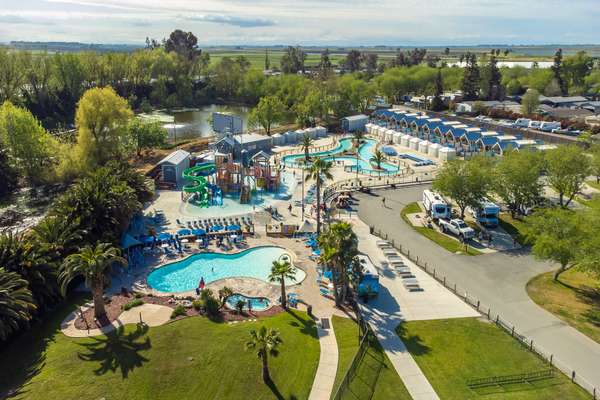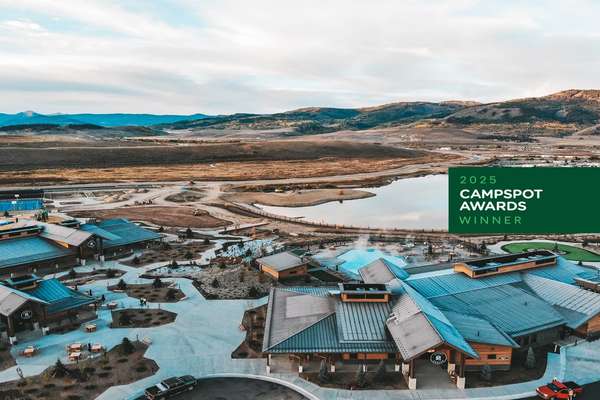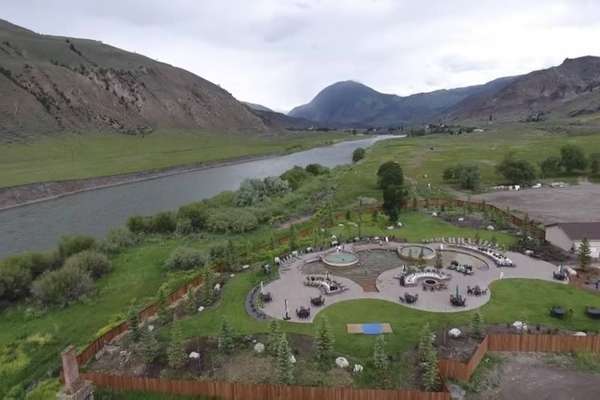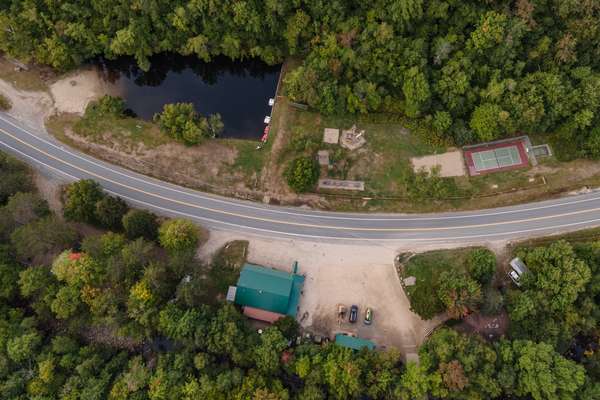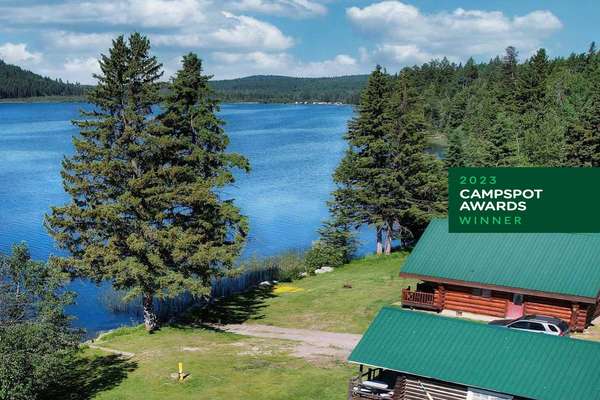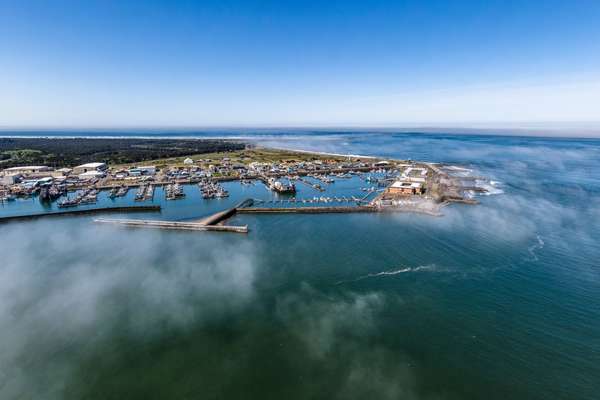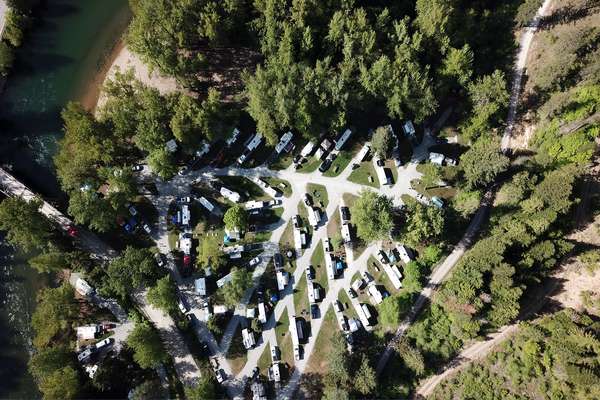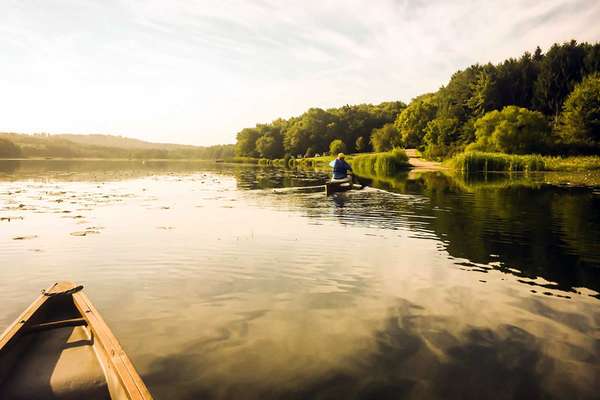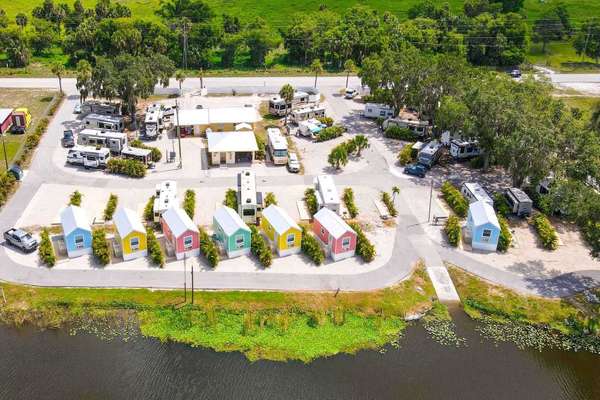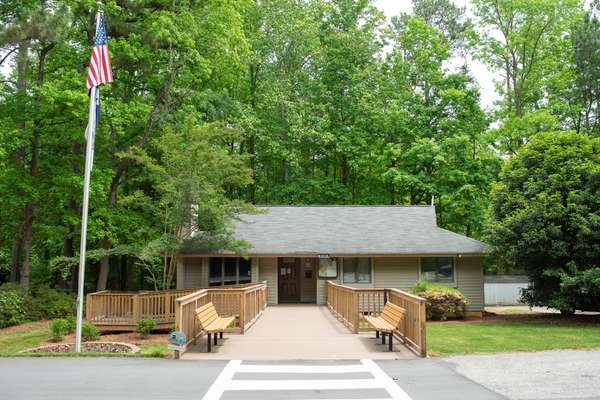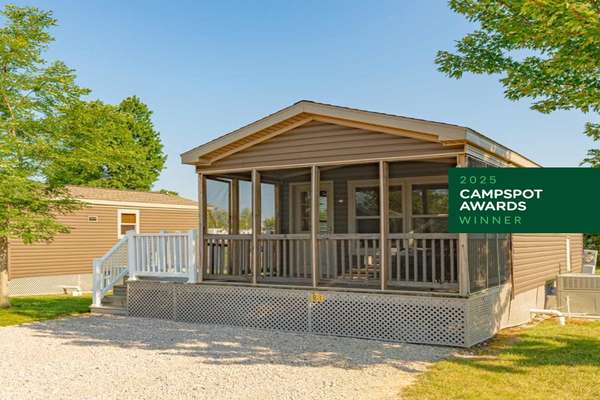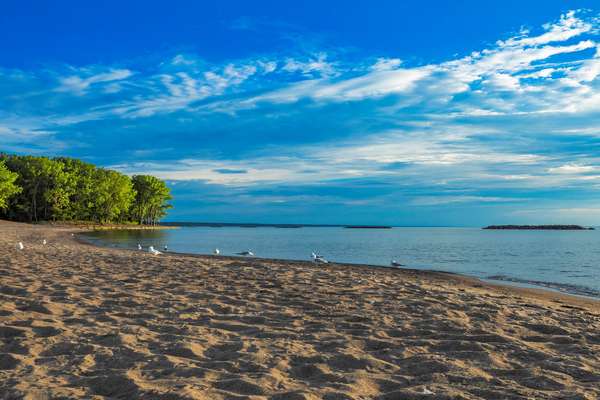FAQs About Fishing
When Is the Best Time of Year to Go Fishing?
Spring and early summer tend to be the best time of year to go fishing for most of the popular game fish species in North America. Most states regulate the open season for sensitive species after they have spawned. Though some species such as panfish (like bluegills and crappie) as well as rough fish (like carp and catfish) remain open all year long.
After a short period of post-spawn recovery, fish put the feed bags on to replenish their strength and put on weight for the coming winter. This makes them more likely to go after the scrumptious-looking baits that you offer up. It also translates into your best chance to create lasting memories of fun fishing trips, where you just couldn’t keep them off your hook.
Once water temperatures start to climb in mid-summer, the dissolved oxygen levels in the water tend to drive a lot of species deeper. They will still bite, but you usually have to work harder to find them, or you have to be ready to take on bigger bodies of water.
When Is the Best Time of Day to Go Fishing?
Early morning and late afternoon tend to be the best times to go fishing. Especially if you’re going after freshwater game fish that like to hunt for their food along weed lines. The angle of the sun creates deep shadows in the weeds, which gives small prey species of fish the courage to venture out.
It also provides visual cover for the predator fish who are there to seize the opportunity. These long shadows help to concentrate panfish, rough fish, and predators in one area, which gives a boost to your chances for success. It also increases your chances of targeting one type of fish like bluegills and accidentally hooking into an impressive predator like a northern pike, who also happens to be on the hunt for a tasty breakfast.
There are also some species like walleye who are more active at night. If you have the wherewithal to stay up long after sundown, and you can time your trip with the full moon, you can get into some seriously fun fishing. Though it’s a matter of “When” not “If” you will eat a mayfly.
What Supplies Do I Need to Go Fishing?
The very first thing you need to go fishing on your camping adventure is a state fishing license. You can usually pick one up at a local bait shop or a sporting goods store. Most states do not have reciprocity for fishing licenses beyond their “Border Waters.” You will need to get a license specifically for the state you are in, even if you already have a fishing license in your home state. The cost for a non-resident license can vary, but is generally higher and has a shorter valid term.
Next on your list of supplies for a camping and fishing adventure is a reliable rod and reel. Ideally, you want a rod that is appropriate for the type of fish you are going after and a reel with a line to match. When in doubt, go bigger than necessary. There are also two types of rod & reels to consider.
Spinning Reel & Rod Combo
Also known as an “open face reel,” this type of reel is a popular choice for beginners because of its ease of use.Most of the moving parts are behind the reel face, including the spool, which is easy to monitor at a glance.
This type of reel is also very versatile, with a 6 or 8-pound test monofilament you can confidently go after a wide range of freshwater gamefish. It’s great for getting kids excited about pan fishing, while also working for adults who want to troll or cast crankbaits for bigger fish.
Baitcaster Reel & Rod Combo
Baitcasters have a revolving reel that sits on top of the casting rod, which includes a comfortable trigger-style handle. The line guides on a baitcasting rod face down. This is a more complicated rod and reel combo to use. If you aren’t familiar with how to use a bait caster, you will encounter moments of frustration and rat nests of line that are more complex than the mysteries of the universe.
If you’re already familiar with how to use a baitcaster, it will reward you with more accurate casts. It also gives you the ability to adjust the retrieval rate of your lure, while also being able to hold a heavier line for going after bigger fish. They are the preferred rod for fishing in big bodies of water over 1,000 acres or more, chasing musky, or working topwater baits for bass.
A Fly-Fishing Rod & Reel
A fly-fishing rod and reel is its own animal. It is designed to cast small hand-tied flies, attached to a special type of fly line using a casting technique designed to build momentum. Some people seem to be born with a fly-fishing gene and learn super quickly,while others spend years pulling hooks out of their clothes and hoping they don’t give themselves an accidental piercing.
If you want to learn how to fly fish, it’s best to get a few lessons and practice in the backyard before going on your camping and fishing trip. If possible, try to schedule at least a half-day session with a professional fly-fishing guide, who can give you the lay of the land, and hopefully some techniques for improving your cast.
A Modest Tackle Box
You don’t need to have every colorful crankbait, downrigger, and gadget to enjoy a fun day of fishing on your camping trip. Though there are a few essentials that even a novice angler should stock in their tackle box. This includes:
- Jig hooks of various sizes
- Sinkers
Traditional bobbers and slip bobbers with ties
Swivels and snaps
Leaders
Extra line
Pre-tied rigs for drift fishing
3 to 5 colorful crankbaits to troll different depths
3 to 5 spoons and spinners for topwater
Tools & Safety Equipment
There are some critical tools and safety equipment that every angler needs to have with them before stepping on a boat. This starts with a properly rated life jacket for everyone, and not those orange throwbacks from the 1950s. Most outfitters and campgrounds with fishing and boat rentals will offer these as part of the cost. Other essential tools include:
What Are The Different Ways I Can Go Fishing?
Even if you don’t have your own boat, that doesn’t mean your fishing options have to be limited. A lot of the best campgrounds with fishing opportunities nearby will offer board rentals or packaged deals with a local marina for discounted guided fishing trips. If it’s located directly on the water, a lot of campgrounds will have some type of fishing pier, dock, or open area for shore fishing.
Renting A Boat To Go Fishing
A lot of lakeshore campgrounds offer fishing boat rentals. This might be a family-friendly pontoon, a classic 14-foot boat with a tiller motor, or even a deep V fish and ski. The campground usually provides the basics including life jackets and might even offer fishing rod rentals with a basic tackle box. If you aren’t familiar with the local waters, or you are new to piloting a boat, you would be wise to buy the added insurance package they offer!
Shore Fishing
Shore fishing can be a great way to get a line wet and reconnect with your family or friends. Though it’s rarely the sort of thing that will yield an impressive story. Shore fishing tends to have the lowest odd of success.
Fly Fishing
Fly fishing is an art form, where you essentially try to paint a mustache on a fish with a hand-tied fly that looks like a colorful insect. If the cunning fish is fooled into biting you then you set the hook and pull on the line or reel the fish in. It is mostly used for stream fishing, though some people have had baffling success fly fishing for bass and even panfish.
Take A Tour Or Go Out Fishing With A Guide
A lot of campgrounds with good fishing waters nearby will have a fishing guide on staff or will be able to refer you to a local guide service. Fishing guides are a great way to get to know the local water and hone your fishing skills. A lot of people who contract a guide for a day or even a half-day will go on to rent a boat later on to repeat their success.
Take a Fishing Charter
Popular fishing destinations with campgrounds on big bodies of water will also have fishing charters. These tours will take a handful to perhaps a dozen people at a time out onto the water for a safe, big water fishing experience. They provide you with pretty much everything you need and offer you the best chance for success.
What About Saltwater Fishing?
Saltwater and estuary fishing has a lot in common with freshwater fishing. Depending on where you go, you will likely target bigger fish, which means learning the basics about how to use a bait caster. It’s also much safer and wiser to contract a guide or go out on charter fishing services.
If the thought of getting seasick on a big water fishing boat has you turning green, you might want to look for a campground with fishing opportunities near barrier islands and estuaries. These are often small crafts, some of which can be pole-driven on calm waters. Guides who take people out on these tours teach you the ins and outs of these lesser-known waterways while also providing a premier fishing experience.
What Types of Campgrounds With Fishing Are There?
Your camping preference and the type of fishing you want to do will heavily influence the type of campground that’s best for your trip.
Primitive Camping With Tent Sites
Primitive campgrounds tend to be tent-only sites that might allow RVs who are willing to boondock off the grid. They are in remote areas with fewer amenities. Though the lack of easy access often means that there is less stress on the surrounding lakes and streams.
This can lead to better fishing, and larger catches. It’s also a chance to connect with the great outdoors. If a campground predominately offers primitive camping sites, it’s less likely they’ll have boat rentals or guides affiliated with them. You’ll probably need to bring your own boat or find a good shore fishing location.
A Modern Campground
Modern campgrounds with fishing nearby tend to be a preferred option for families who enjoy tenting. Many offer up power poles or shore power connections. Sites that are on the water often have a marina, a dock, or a stretch of shore where you can pull your boat up. Boat rentals tend to be common, and there are usually activities for members of the family who might not be up for spending a day on the water.
RV Campgrounds
RV Campgrounds usually have a variety of large pull-thru and back-in sites for travel trailers, fifth wheels, and motorhomes. Though most also have sites reserved for tents to accommodate everyone. Most RV campgrounds also have bathrooms, showers, a cantina, and things for the kids to do, while the anglers in the family hit the water.
Many RV campgrounds with fishing opportunities nearby also have boat rentals. A few will have fishing guides on referral or can point you to a local charter service that can give you the lay of the land.
Cabins & Lodges
Cabin rentals, lodges, and resorts with rental units offer a campground feeling, with the comforts of a home away from home. Some even verge on “Glamping.” They also tend to have local guides and charters that they work with, as well as a full spectrum of boat rentals.
Destinations on the Water
There are a lot of great campgrounds with fishing opportunities nearby. Some even have their own marina, and affiliated guide services, while others are simply located in a sweet spot for fishing. Many of the top campgrounds that made the list below are also close to other area attractions. This lets the angler in the family wet a line all day long if they want to, while non-anglers can delve into everything the surrounding area has to offer.




